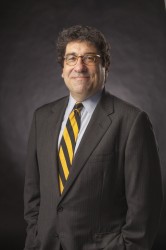Vanderbilt University has released results from its inaugural Campus Climate Survey on Sexual Assault. The university also released recommendations developed by its Provost’s Task Force on Sexual Assault based on its analysis of survey results.
The survey was conducted in the spring of 2015. More than 11,500 undergraduate, graduate and professional students were asked to respond to one of two survey instruments, which included questions about the prevalence of various kinds of sexual assault, whether and how incidents are reported, and student awareness and use of campus resources.
One questionnaire was developed by the Education Advisory Board, the other by EverFi, Inc. Both firms provide consulting services to colleges and universities across the country. Vanderbilt used two questionnaires to see which worked better and had a higher response rate.
The White House Task Force to Protect Students from Sexual Assault has recommended that colleges and universities conduct campus climate surveys, and many schools are doing so.

“We are deeply committed to ensuring the safety of each and every member of our Vanderbilt community. Acts of sexual assault in any context are totally unacceptable and will not be tolerated,” Chancellor Nicholas S. Zeppos stated. “This climate survey gives us invaluable information about sexual assault on our campus, how many incidents are – and are not – reported, what our students know about the programs and services we provide, and how well we are handling incidents that are reported. It is vital that we understand the extent of the problem at Vanderbilt, how best to prevent it, and how to provide victims the support they need and deserve.”
More than a quarter of the students who received a questionnaire responded in whole or part. A higher percentage responded to EAB’s questionnaire than EverFi’s. Although there were differences in the questions asked and response options offered on the two survey forms, the results paint a clear picture.
Between 12 and 15 percent of total respondents (and approximately 20 percent of undergraduate respondents) said they experienced unwanted sexual contact, according to the EAB survey. For example, 17.5 percent of undergraduates report behaviors such as unwanted kissing or fondling, with 3.4 percent reporting sexual penetration.
The majority of sexual assaults reported by survey participants are perpetrated by people known to the victim. While most victims report incidents to someone, they are more likely to tell friends and roommates than the Equal Opportunity, Affirmative Action, and Disability Services Department (Vanderbilt’s Title IX office), the Project Safe Center for Sexual Misconduct Prevention and Response, the Vanderbilt University Police Department, a faculty member, or a confidential resource. Although most respondents think the university takes sexual assaults seriously, many fear retaliation from other students if they make a report.
A majority of all respondents reported they had received training on sexual assault prevention. More than 90 percent of first-year students reported on the EAB survey that they had received sexual assault prevention training from Vanderbilt. During the 2014-2015 academic year, an online sexual assault prevention module was required for all incoming first-year and transfer students. Training records confirm that 100 percent of this group completed the required module.
A large majority – about 8 or 9 in 10 – feel safe at Vanderbilt. Most respondents know where to get help in the event of a sexual assault. But only slightly over a third said they understand how the university investigates and resolves sexual assault complaints.
“The insights we gain from the survey must and will inform Vanderbilt’s response to this serious problem, which is impacting the safety and well-being of students here and on campuses across the country,” said Vanderbilt Provost Susan Wente. “That is the mission of the Provost’s Task Force on Sexual Assault and why we will continue to collaborate with all students and other members of the Vanderbilt community about this.”
The provost’s task force developed a series of recommendations based on student survey responses. Laura Carpenter, associate professor of sociology and chair of the task force, said, “A key takeaway is that most students don’t understand the university’s ‘formal procedures’ for handling sexual assault cases.”
For that reason, the task force has proposed steps to increase awareness of the procedures for reporting, investigating and adjudicating sexual assault and other sexual misconduct incidents. The task force has also recommended increasing education and prevention programming for students, faculty, and staff on sexual assault and other sexual misconduct.
The Provost’s Task Force, the Faculty Senate and Vanderbilt Student Government will join university administrators Feb. 1 to engage the campus community in a discussion of the survey findings and recommendations and to take questions and suggestions about the survey data and its implications.
“We want to keep all lines of communication open,” Wente said. “Everyone in our community must understand that there is no excuse for sexual assault and that Vanderbilt is committed to tackling every aspect of this problem.”
The full survey results can be found at http://vu.edu/campus-climate-survey.